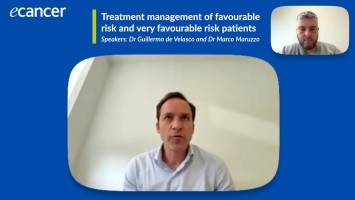Pushing the conventional chemotherapy has let us achieve a cure rate of over 90% now, in fact probably 92%. However, a recent study showed that we have reached our limit. Further intensified chemotherapy will result in more toxic death, therefore even though we may prevent additional relapses we won’t improve the cure rate. Therefore, with the recent advent of novel molecular therapeutics and good immunotherapy we can further improve outcomes by replacing toxic chemotherapy with those novel agents. The time is now that we should start using novel therapies.
In this regard, actually, adult oncologists are leading the way. We paediatricians should really start learning from adults how to use molecular therapeutics and immunotherapy in combinations to push the envelope forward so we can cure the remaining 5-7% of the patients. At the same time we can improve quality of life of our child survivors.
It is important because we want to cure 100% of the patients. As long as there’s a child dying of leukaemia it’s not acceptable to us. Also we find it is getting more and more difficult to take care of children receiving intensive chemotherapy because they get really sick and as a paediatrician we really hate to see that. So we want our children with leukaemia to survive with a good quality of life. We want to reduce both acute and late side effects.
What evidence is there from recent studies that supports ongoing research in this area?
Actually one of the recent studies published by us on the TOTXVI protocol, this protocol has enrolled over 600 patients treated since 2007. In that protocol we intensified treatment and further improved event free survival by 2%. However, we did not improve the survival rate because the decrease in relapse is counteracted by the increased toxicity. This study told us that we are pushing the chemotherapy to its limit so any gain from the decreasing relapse rate was counteracted by increased toxicity and toxic death.
Is there anything you would like to add?
Yes, also a recently Chinese reported study using a second generation of tyrosine kinase inhibitors showed that a newer generation of tyrosine kinase inhibitors can improve the outcome of a high-risk subgroup of patients with Philadelphia chromosome positive acute lymphoblastic leukaemia. The new generation of tyrosine kinase inhibitors further decrease the relapse and, more importantly, can cure Philadelphia chromosome positive ALL without the use of cranial radiation.








